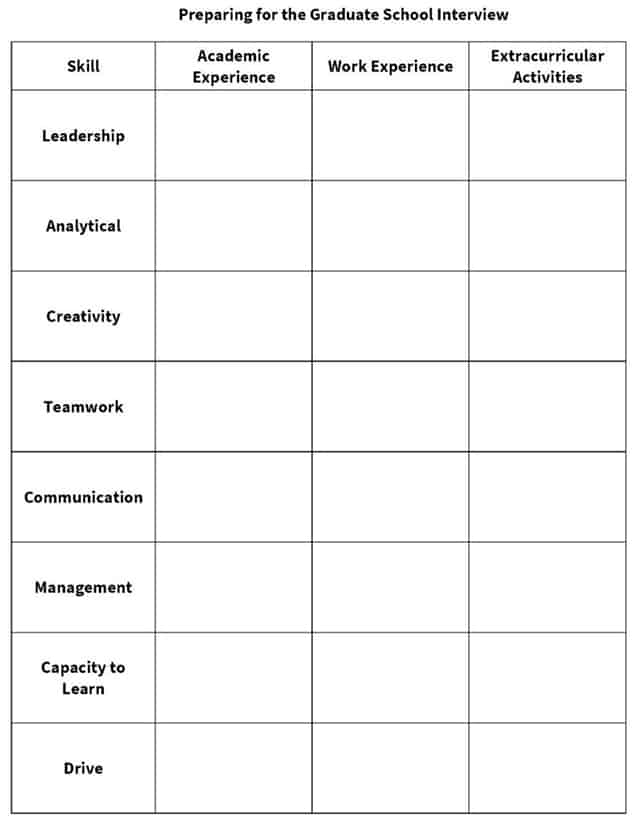5 Tips on Preparing for the MBA Interview
Friday | February 3, 2017 | by Aimee Akimoff

Applying to a Master of Business Administration (MBA) program can be intimidating. Aside from the examinations you need to take and the documents and recommendations that need to be collected, one of the most intimidating parts of the application process is the MBA interview.
If you are worried about the interview, remember that it is your opportunity to talk about yourself beyond just your test scores and GPA (grade point average). It is a chance to talk about why you feel you are a good fit for that program. Being well prepared for the interview can also reduce the intimidation factor and can give you the confidence you need for a successful interview.
Here are five ways you can prepare for the interview:
Research the Program
The first step in preparing for the interview involves research. We talk a lot about “fit” in the admissions process. As admissions professionals, it is our job to develop a diverse and qualified group of students who can collaborate together and also contribute to the learning process. The more you know about the program, the better you will be able to articulate both your “fit” for the program and the unique perspective you can bring.
Prepare Thoughtful Questions
The interview is a way for you to learn more about the school; therefore, it is important to prepare your own set of questions to ask the interviewer. The more research you do on the program, the more prepared you should be to ask thoughtful questions. Do not ask questions that can easily be answered from the website. Your questions should show that you have done your research and want to know more in-depth details about the program that cannot be found elsewhere.
Practice
Most likely, you will know beforehand whether your interview will be conducted through Skype, telephone, or in person. A Skype or telephone interview is very different from an in-person interview. If you know you will be interviewing by Skype or telephone, practice answering questions with a friend. Remember to smile, even if you are on the telephone. A smile encourages you to maintain a positive tone.
Prepare an Interview Prep Worksheet
Most interviews will ask you to identify both challenges and accomplishments from your past using real examples. If you are feeling nervous during the interview, you may not be able to think of a single example for this kind of question. This is a common issue for many people, but you can avoid this by preparing an Interview Prep Worksheet (see below).
Using this worksheet, you should think of both challenges and accomplishments that you can easily refer to during the interview. On the left-hand column, there is a list of skills that will most likely be brought up somehow during the interview.
For example, teamwork is a skill that is often utilized for an MBA. There is a high chance that you will be asked for an example of when you worked in a team and to mention both successes and failures.
Across the top of the Interview Prep Worksheet, you will see the different types of experiences you can draw from: academic, work, and extracurricular. Think of experiences for all three of these categories to give your examples some variety.
For example, in the extracurricular experience column, you could mention your involvement on a sports team to talk about teamwork. You could also mention a team project you had to do at work or in school. The more examples you can provide in these three categories, the more interesting your examples should be. This can be especially helpful for someone who does not have a significant amount of work experience to draw from yet.
Most Importantly: Have Fun!
The more you relax and enjoy your interview, the more enjoyable it should be for the person doing the interview as well! Share your unique perspective and how you will contribute to the MBA program to set yourself apart.
Willamette’s Early Career and Career Change MBA program is uniquely designed for recent college graduates or for those looking for a change in their career. Students build their experience and résumé through real-world projects, experiential learning, and career management tools.
The views and opinions expressed in this article are those of the author(s) and do not necessarily reflect the official policy or position of World Education Services (WES).

